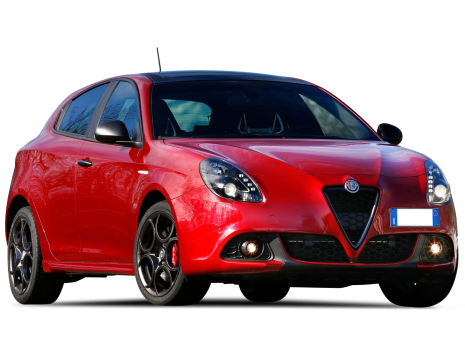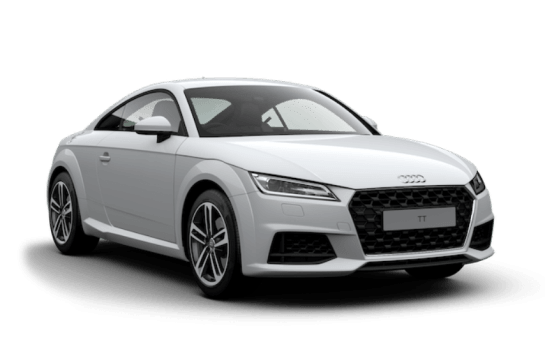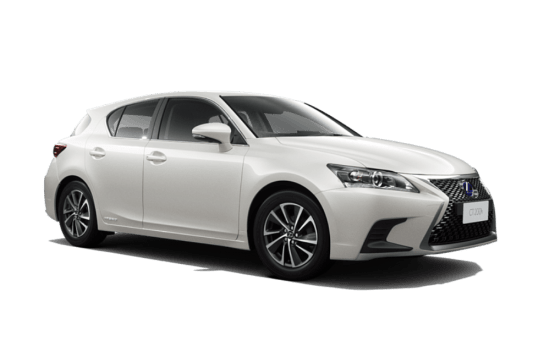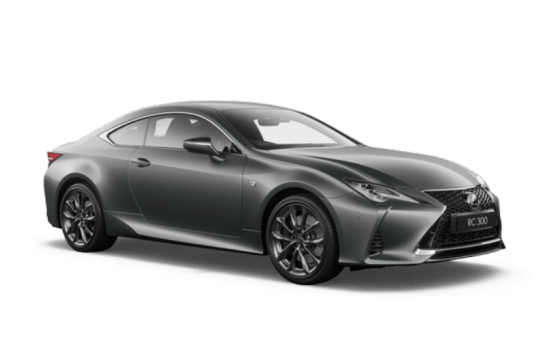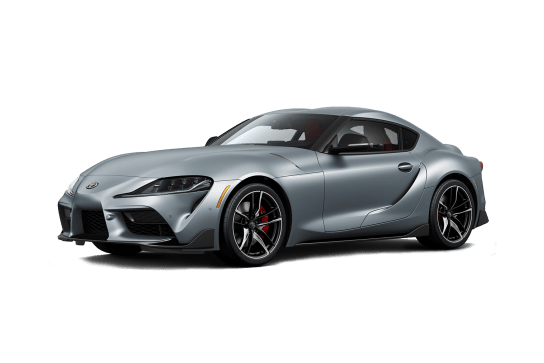
BMW 2 Series VS Lexus RC
BMW 2 Series
Likes
- Sleek sedan design
- Excellent three-pot turbo engine
- Sharp steering and handling
Dislikes
- Why $7000 more than the hatch?
- Lacklustre warranty term
- Cheap feeling leather trim
Lexus RC
Likes
- Smooth, effortless V6
- Better looking than before
- Tweaked chassis feels good
Dislikes
- Thirsty
- Useless rear seats
- Heavy
Summary
BMW 2 Series
You’d be forgiven for thinking there aren’t many sedans left on sale in Australia, thanks to the massive shift in buyer preference to SUVs.
But while mainstream carmakers like Ford, Mitsubishi, Nissan, Subaru, Volkswagen and a lot more have scaled back their booted offerings, premium brands are yet to give up on sedans.
BMW alone has seven sedan models in its line-up ranging from small offerings like the 2 Series Gran Coupe all the way up to the 7 Series and 8 Series.
We are focusing on the former for this review, in entry level 218i guise. It’s a sleek sedan that certainly catches the eye, but can it compete with similarly priced SUVs in our crossover-loving country?
| Safety rating | |
|---|---|
| Engine Type | 1.5L turbo |
| Fuel Type | — |
| Fuel Efficiency | 5.9L/100km |
| Seating | 5 seats |
Lexus RC
It's 2019 and the Lexus RC has been with us for four years which means it's time for a mid(ish)-life update. A glance at the specifications and tech details for its very low-key, late 2018 arrival suggests not much has changed. And let's be fair, it hasn't.
The mild refresh has brought a few changes in spec (in the right direction), price (the wrong direction, but few things are free in this life), and styling (you be the judge).
| Safety rating | |
|---|---|
| Engine Type | 3.5L |
| Fuel Type | Premium Unleaded Petrol |
| Fuel Efficiency | 9.4L/100km |
| Seating | 4 seats |
Verdict
BMW 2 Series7/10
The sleek 2 Series Gran Coupe has injected some life into the sedan segment and adds another dimension to BMW’s line-up.
After spending a week with the 118i hatch and another week with the 218i Gran Coupe, I would pick the hatch because it suits my needs better and has a more understated design, at least from the A-pillar back.
But there is little to fault in the 218i, aside from the obviously higher price compared with a mainstream sedan like a Mazda3. But, as with the hatch, if you want something a little more premium and a little more special, then this funky sedan is well worth considering.
Lexus RC7/10
The RC's time on my drive was preceded by a cheaper, V8-powered Mustang, so it was fascinating to compare the Japanese approach to the American. They're not really competitors, obviously, but the Lexus' ability to cosset the driver while still showing a good turn of speed was an interesting counterpoint.
The 2019 RC350 isn't a step-change - if you want one of those, double your money and get the delightfully nutty RC F - but the changes inside, outside and underneath will certainly please the fans even if it doesn't bring in new ones in huge numbers.
Does anyone still even notice luxury coupes? If you do, is Lexus even on the radar?
Design
BMW 2 Series
From the front, the 2 Series Gran Coupe carries the same face as the handsome 1 Series hatchback. But from the A-pillar back, it’s a completely different look.
BMW’s ‘Gran Coupe’ series of models - 2, 4 and 8 Series - are not just regular sedans. They are sleeker, with a coupe-like sloping roofline and a more squat stance. It’s BMW’s way of making sedans sexy. And it has worked on each of those models.
The 218i’s boot sits up high and the rear treatment with the wide slimline tail-lights and integrated boot lip spoiler make the car visually appealing. I prefer the look of the 1 Series hatch, but appreciate the sleek sedan.
As with the hatch, the 218i’s interior is a modern take on the unmistakable BMW cabin, and for the most part it’s a successful design.
Lexus RC7/10
As a whole, I've always thought the RC to be handsome, but the headlights - as on the IS - always made me wince a bit. There's too much going on, which is weird because the rest of the car is very easy on the eye.
As is common with a mid-life facelift, the work all happens at the front and rear. There's a revised bumper, tweaked mesh pattern in the spindle grille, and a much better looking set of headlights - with much cooler LED daytime running lights and headlights. They're still a bit much, but they're not jarring.
The rear is a little cleaner but I reckon it didn't need much work. Along with new wing mirrors from the gorgeous LC coupe and new wheel designs, it's a subtle update, but a good one.
Inside is little-changed, which is good and bad. A new brushed-aluminium dash inlay, a new (naff) analogue clock, and not a huge amount else. The switchgear has a lovely damped feel, nothing clicks or snaps and it really is very serene indeed. Few cars can match a Lexus interior for feel and touch.
Some of the design decisions are confusing, though. A rotary dial to change driving modes looks more like it should be used to control the media system, and the media system's touchpad is really annoying.
Practicality
BMW 2 Series
The main key difference between the 1 and 2 Series is the boot capacity. But in terms of interior appointments, not much separates the two.
Our 218i test car was optioned with black ‘Dakota’ leather trim, which does not look or feel particularly premium. The blue pattern trim in the 118i hatch was much more visually appealing, helping to break up the dark greys of the cabin. But in the 218i, it just makes everything look rather dark and gloomy.
As with the 118i, the BMW 'iDrive' controller and multimedia touchscreen are top notch, all controls come to hand easily, and the dash is angled to the driver. For more details on the interior, check out my 118i review.
The bigger differences are in the second row. The Gran Coupe has less headroom compared with the hatch, due to the sloping roofline and the optional sunroof.
Both body styles share the same 2670mm wheelbase, which should mean legroom is the same. For some reason the 218i feels ever so slightly tighter in the rear, but we are splitting hairs here.
Rear-seat occupants have access to two USB-C ports, map pockets and, unlike the hatchback, the Gran Coupe has a central fold-down armrest with two cupholders. Tall bottles will fit in the door storage compartment. Sadly the 218i lacks any rear air vents.
The doors also have a smaller aperture, so it’s not as easy to get in and out of compared to the hatch.
The rear seats fold 60/40 via levers in boot. Speaking of which, the boot can swallow 430 litres of cargo, which easily exceeds the 380L capacity of the 118i hatch. It also matches the boot space in the Mercedes-Benz A180 sedan and is just five litres bigger than the Audi A3 35 TFSI sedan.
Lexus RC6/10
As ever, a sports coupe is the not the place to consider starting your DIY career, but front seat passengers luxuriate with plenty of space. A good-sized glove box joins two cupholders in the centre console which also has a decent-sized bin for hiding things, as well as a sensible place to put your phone (no wireless charging, sadly).
Rear seat passengers have very little space for their limbs or heads but at least the seats are comfortable. Two more cupholders back there, but really, nobody will use them.
The boot is a very useful 423 litres.
Price and features
BMW 2 Series
Determining whether the BMW 218i Gran Coupe represents good value is tricky. Because you can get any number of small sedans from mainstream brands - like the Mazda3, Toyota Corolla, Subaru Impreza and more - for much less money, but with similar, or in some cases, more kit.
But if you’ve been 'glamoured' by the BMW badge and couldn’t possibly buy something non-European, the good news is the Bavarian brand is much better at including standard features than it used to be.
Could there be more standard gear for the price in this car? Absolutely. But, it’s not a slim features list either.
The 218i kicks off the 2 Series Gran Coupe line-up from $56,900, before on-road costs. From there you can step up into the 220i ($59,900) which gets a little more power and torque, and then there’s the sporty M235i xDrive Gran Coupe in Pure ($74,900) and regular guise ($79,900).
The price difference between the 218i sedan and the 118i hatchback I reviewed recently, is $7000. That is a massive uptick in price for a vehicle that, underneath, is identical. Essentially you’re paying for the boot.
It’s especially surprising when you consider the price gap between the hatch and sedan versions of its chief rival - the Mercedes-Benz A-Class A180 - is just $1700. While the Audi A3 35 TFSI sedan is only $2500 more than the Sportback hatch.
A lot of mainstream brands don’t charge any extra for a sedan body style over the hatch model in the small segment. Take a bow Mazda3, Kia Cerato and Toyota Corolla.
Lexus RC8/10
While you can have an RC300 in the mid-sixties, the F Sport starts at $77,529, $200 extra than before. On the face of it, it doesn't look like amazing value, but get a Euro competitor and you'll be paying more.
You get 19-inch alloys, a 17-speaker stereo, four-wheel steering, dual-zone climate control, reversing camera, front and rear parking sensors, active cruise control, auto LED headlights, auto wipers, sat nav, electric heated and ventilated front seats, leather everywhere, a limited-slip diff, variable ratio steering, adaptive dampers, keyless entry and start, and an improved safety package.
The 17-speaker stereo is a treat but the media system is not; controlled from the console by a touchpad, it's hard to use and a pain to navigate. It has Bluetooth and USB connectivity with terrific sound, but it requires patience to operate - which includes the time to get the required qualifications (okay, slight exaggeration). And there is no Apple CarPlay or Android Auto to take the edge off. Pity.
Under the bonnet
BMW 2 Series
Mirroring the 118i, the 218i uses BMW’s three-cylinder turbocharged petrol engine, with power and torque outputs of 103kW and 220Nm, respectively. This compares to 110kW/250Nm for the base Audi A3 and 100kW/200Nm for the Mercedes-Benz A-Class.
The 218i uses a seven-speed dual-clutch automatic transmission driving the front wheels only.
According to BMW, the 218i can complete the 0-100km/h dash in 8.7 seconds - 0.2sec slower than the hatch.
Lexus RC7/10
The RC350 packs Lexus' creamy 3.5-litre, naturally aspirated V6, a step up from the RC300's turbo four-cylinder. Power remains at 232kW/380Nm, driving the rear wheels through an eight-speed torque-converted automatic.
The RC350 cracks the 0-100km/h sprint in 6.3 seconds, which isn't bad considering it's a hefty beast at over 1700kg.
The RC300's turbo four spins up 180kW and an impressive 350Nm if you're keen to save a few dollars upfront and on running costs.
Efficiency
BMW 2 Series
On the official combined fuel cycle, the 218i uses 5.9 litres of fuel per 100 kilometres - the same as the 118i hatch. After a week of mixed driving, I recorded a figure of 9.1L/100km, which is quite a bit more than that official figure.
In terms of CO2 the official emissions figure is 135g/km and the 218i requires 95 RON premium fuel for its 50-litre fuel tank.
Lexus RC6/10
Lexus says the 350 will manage 9.1L/100km on the combined cycle but I scored a rather less convincing 12.8L/100km. Again, that's probably not bad considering its weight. The tricky dash display had me thinking it was an amazing 7.8L/100km, but it was km/L...
There is no stop-start, cylinder-on-demand or battery regen tech to save fuel - features its European rivals all have at least one of.
Driving
BMW 2 Series
If you love the look of the 2 Series Gran Coupe but are after an extra dollop of performance, the all-wheel drive 225kW/450Nm M235i xDrive is the pick of the range.
But don’t think the 218i is a lazy performer - it’s far from it.
The 218i’s acceleration is responsive, even quick, and it offers more than enough straight-line performance to satisfy most drivers.
On take-off there is some turbo lag, which isn’t helped by the fuel-saving idle-stop system, however that can be switched off, which we did every time we got behind the wheel.
Momentum was a little blunted by a steep hill, but other than that, no complaints about the sweet engine.
Steering is weighted on the heavier side but it is sharp.
As is expected of a BMW sedan, the 218i is engineered for engaging handling, and the balanced chassis and well-tuned suspension set-up encourage enthusiastic driving.
Excellent road-holding and grip ensured it did not come unstuck on uneven roads and overall the 218i feels really solid. Those front-wheel drive naysayers have officially been put in their place!
'Sport' mode livens things up with a noticeable improvement to throttle response.
The ride seems more supple at speed, but can feel on the firmer side in urban driving. But nothing that would strike it from your shopping list.
Lexus RC8/10
As it has ever been, the RC350 is one smooth, smooth ride. Even the way the doors open is relaxing: swinging wide open like the hinges are made of butter, (except butter that doesn't melt or sag). Look, I'm trying to avoid saying smooth again.
Engine start-up is barely audible and while pottering about the engine remains just as subdued. It's up to the digital dashboard, with its instruments clustered into a single dial with a digital speedo, to let you know what's going on. Few cars outside of the Lexus stable are this relaxing to drive.
What I don't remember from the last time I drove an RC was all-wheel steering. Either I wasn't paying attention or Lexus snuck it in - but it really makes a difference. It's not as aggressive as, say, the bonkers RC F or Renault Sport Megane, it's just there to help bring the heavy car around. It also seems better sorted than the same system in the bigger LC500. And the steering's variable rack works well with it as a partner, too.
The RC's adaptive suspension is so good at what it does. It never over-tightens the suspension but does make a difference in Sport+. It's not really in the 350's nature to take it out for a good thrashing, but it's certainly capable - if held back a little by its portly kerb weight and soft brake pedal feel.
Safety
BMW 2 Series
The 2 Series Gran Coupe carries over the maximum five-star ANCAP crash safety rating awarded to the mechanically related 1 Series hatch. The test was conducted in 2019.
Standard safety equipment includes low-speed auto emergency braking, forward collision warning, lane departure warning, rear cross-traffic alert, driver attention alert, front and rear parking sensors, reversing camera, cruise control, and six airbags - although it doesn’t include a front centre airbag.
Lexus RC7/10
The RC comes with eight airbags (including knee bags), ABS, stability and traction controls, active bonnet, lane departure warning, blind-spot monitoring, rear cross traffic alert, forward AEB and forward collision warning.
There are two top-tether restraints and two ISOFIX fittings in the back.
ANCAP has not tested the RC but it scored a 'Good' rating from the US IIHS test regime.
Ownership
BMW 2 Series
The 218i comes with BMW’s three-year/unlimited kilometre warranty - a term that is well behind the majority of its competitors that offer five-year/unlimited kilometre cover.
Rather than an annual service schedule, BMW uses ‘condition-based servicing’, which essentially means that the vehicle’s computer will inform you when the car needs a service.
BMW’s 'Service Inclusive' pre-paid plan covers owners for five years or 80,000km for the 2 Series, and involves a $1700 up-front payment. It averages out to $340 per service, which is actually pretty reasonable for a high-end brand.
Lexus RC7/10
Unlike parent company Toyota, Lexus offers a four-year/100,000km warranty. Also unlike Toyota, you don't get an absurdly cheap deal on servicing, and there's with no capped-price regime. Lexus wants to see your car every 12 months or 15,000km.
To soften the blow of no capped-price servicing, Lexus will either give you a loan car or, even better, come and fetch your car from you before returning it vacuumed, washed, and serviced.
You also get a fairly comprehensive four years of roadside assist and a few other perks.




